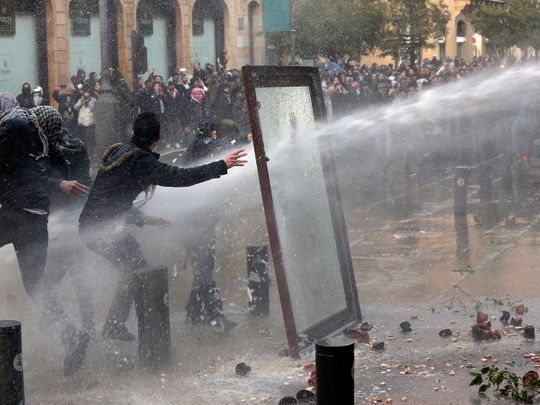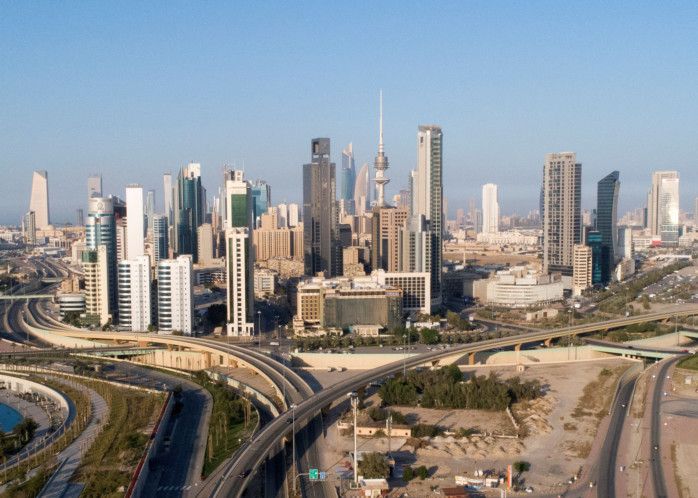
Over the past year, some in the media were talking about a second round for the so-called “Arab Spring”. On looking closely at the factors that may lead to such an outcome, we found only some isolated incidents in Lebanon and Algeria that took place before the pandemic outbreak and not enough of them to come to this conclusion.
It is too obvious to ignore that some forces were working covertly to stoke unrest by deceiving the easily manipulated. These disruptive forces resorted to new and malicious tactics after recognizing that their earlier attempts were futile, and resulted in nothing but catastrophe for Syria, Iraq, Libya, Yemen, and even Tunisia. This is why they are trying to adopt a new style that is more insidious by sabotaging the economies of the targeted countries.
Just as the Qatari-funded sabotage campaign of the first Arab Spring began in the Arabian Gulf, specifically in Kuwait with the support of Muslim Brotherhood, those for the second round also began in Kuwait with a new Qatari tactic, stimulating economic sabotage through the ‘Fashionista’ (influencers) group who are being directed by Doha.
Now that Qatar suffers from a boycott from the three Gulf states, in addition to Egypt, the doors of evil have been blocked before its activities could gain traction in these countries. This tempted Qatar to stab Kuwait in the back despite the latter’s sincere efforts to end the boycott.
Just as the traveler from Qatar to Riyadh, Abu Dhabi and Manama must pass through Kuwait, the process of economic destruction in the three countries, reached the three Gulf states through Kuwait.
There was a shadow economy that caused many individuals to accumulate obscene wealth after signing “fake” contracts worth millions of dollars and embarking on a major campaign to launder money, promote drugs and smuggle valuable goods.
That shadow economy led to a near-collapse of the advertising industry and other key sectors.
Vested interests at work
This was done through the formation of an economic sabotage centre in Kuwait and linking other countries’ networks to this hub. Had it not been for the boycott, the sabotage network would have spilled over in a way that is difficult to control.
And were it not for the vigilance of the Kuwaiti security forces of the disruptive networks, we would have seen major economic sectors deteriorate and spark a wave of social discontent. The signs were there before influencers’ accounts were suspended and properties confiscated.

Run parallel networks
It is worth noting that being an influencer is just an unconventional way of life, not a job. But in this case, it turned to be a wage-earning profession.
To explain how the economic damage works, it can be put this way: There was a shadow economy that caused many individuals to accumulate obscene wealth after signing “fake” contracts worth millions of dollars and embarking on a major campaign to launder money, promote drugs and smuggle valuable goods.
That shadow economy led to a near-collapse of the advertising industry and other key sectors. It also cost the state loss of income.
Consequently, all sectors were affected by the economic sabotage, given the fact that most of Kuwait’s sectors are dependent on bank financing. If the destruction had continued, things would have been much worse costing the county much by way of job losses, higher inflation and capital flight, which would then trigger a fresh wave of discontent in society. Thus it was to be the prelude to the second Arab Spring.
Converts to the cause
Certainly, most influencers don’t comprehend the serious implications of their actions, simply because they were exploited as tools to sabotage by the forces of evil, and in turn were given great wealth that made them lose their minds.
For example, the leader of the group created a fortune of 500 million Kuwaiti dinars ($1.5 billion) within a short period, although he was having a middling job at a media company and earning a modest salary of not more than 700 dinars per month.
In addition to the strict Kuwait measures taken to suspend fashionista activities and freeze their accounts, Saudi Arabia took similar strict measures that led to the arrest of some “influencers” and a freezing of their accounts. The UAE and Bahrain have also taken similar measures.
However, the monthly income of one of the influencers was $300,000, while another one - hailing from a simple Gulf family - bragged in the media about wearing a necklace worth 20 million Saudi riyals ($5.3 million), along with other expensive accessories...
Unfortunately, preparations for the second Arab Spring and the economic disruption came against the backdrop of unfavourable conditions caused by the pandemic, which brought most economic activities to a standstill.
On the other hand, and thanks to the efforts made by the security services in Kuwait, Saudi Arabia, the UAE and Bahrain, it can be said with confidence that the second round of Arab destruction Qatar is promoting through Al Jazeera and regional media outlets will come to naught. Qatar is not alone - there is the Hezbollah, which is involved in money laundering and drug smuggling.
In addition to the strict Kuwait measures taken to suspend fashionista activities and freeze their accounts, Saudi Arabia took similar strict measures that led to the arrest of some “influencers” and a freezing of their accounts. The UAE and Bahrain have also taken similar measures.
Like in the first round, the game to stir up the flames was exposed as soon as it began, and the accused were referred to the judiciary for punitive legal action.
It has become necessary to address the damages caused by the influencers, especially the economic ones in addition to social and moral damage.
Well funded
Unsparingly, some influencers are directly linked to forces of sabotage outside the country, as evidenced by periodic meetings in Doha, where they received orders and financial support to accelerate their campaigns of malintent.
However, there was also a group of naive influencers who did not understand the extent of economic and social harm they could cause their homelands. Yet, this does not exempt them from accountability as “the law does not protect the dupes”.
A question arises here: What does Qatar want from doing all of that? Why engage in all these aggressive acts against its brothers?
Although it is difficult to give a convincing answer, the destructive attempts targeting our countries involved coordination with other forces. Qatar’s role in this game was as the source of funds, while other forces played the role of instigator and a third-party led the violence and riots.
It has become necessary to address the damages caused by the influencers, especially the economic ones in addition to social and moral damage. For example, a TV presenter asked a child in one television programme dedicated to children about her future ambition - “Would you like to be an engineer, scientist or doctor?” The answer? “I want to be a fashionista!”.
It goes without saying that the implications are not limited to economic damage, but rather to poisoning the minds of future generations and turning them into dependents, instead of being innovative and creative talent who can contribute to the progress of their societies.
This is indeed a dangerous matter with destructive dimensions. It requires the utmost attention, and central banks in the Gulf states should tighten control over the movement of capital and the accounts of the very soon-to-be-rich to protect society from all sabotage.
- Mohammed Al Asoomi is a specialist in energy and Gulf social affairs.








